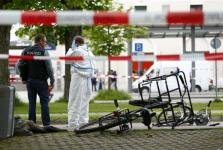The province of Sindh has always taken pride in its pluralism, diversity and sufi traditions but today, it faces a serious threat from Islamic fundamentalism. Banned militant outfits and radical religious seminaries often affiliated with them are operating with impunity. Recent years have seen a rise in sectarian killings, forced conversions of Hindus and other minorities compelling many to move elsewhere and violence in the name of religion.
The PPP government has been unable to devise a strategy to counter elements that are threatening to change the landscape of the province. While religious extremism is a national issue, and the PPP alone cannot be expected to reverse the tide, the party is yet to make a serious effort on this front and fulfill its responsibility as the ruling party of Sindh.
Its ‘progressive’ leaders hardly ever shy away from offering rhetorical speeches on the subject, but their contribution towards devising and implementing concrete measures against militancy is crucially missing. The provincial government is extremely inefficient, and with Syed Qaim Ali Shah serving as Chief Minister and PPP co-chairman Asif Ali Zardari unwilling to change his ways, there is no respite in sight for the common people.
The suicide blast at an imambargah in Shikarpur, which has so far killed 50 persons and injured several more, is part of a concerted violent campaign against the Shia community of Pakistan but it remains to be openly recognized as such. Religious parties such as JUI-F and JI never have much to say about the routine killings of Shia Muslims and the persecution of other minorities across the country. In many cases, they ally themselves with overtly sectarian groups and rush to their defense to shield them from any possible action. Many elements within these parties in fact subscribe to the same hateful ideology that is behind the attack in Shikarpur.
In several parts of the country, sectarian groups enjoy enviable freedom to run seminaries and conduct fundraisers right under the nose of the provincial governments. Following the Peshawar incident, the country’s political and military leadership had promised to implement the National Action Plan (NAP) to eradicate terrorism. The people are waiting. Half-measures cannot suffice which ought to be clear by now. The Sindh government can either blame the federal government or the establishment for rampant militancy, but that will not justify its own failure. A day of mourning for the victims will not prevent the nightmare from recurring if negligence and inaction persists.




